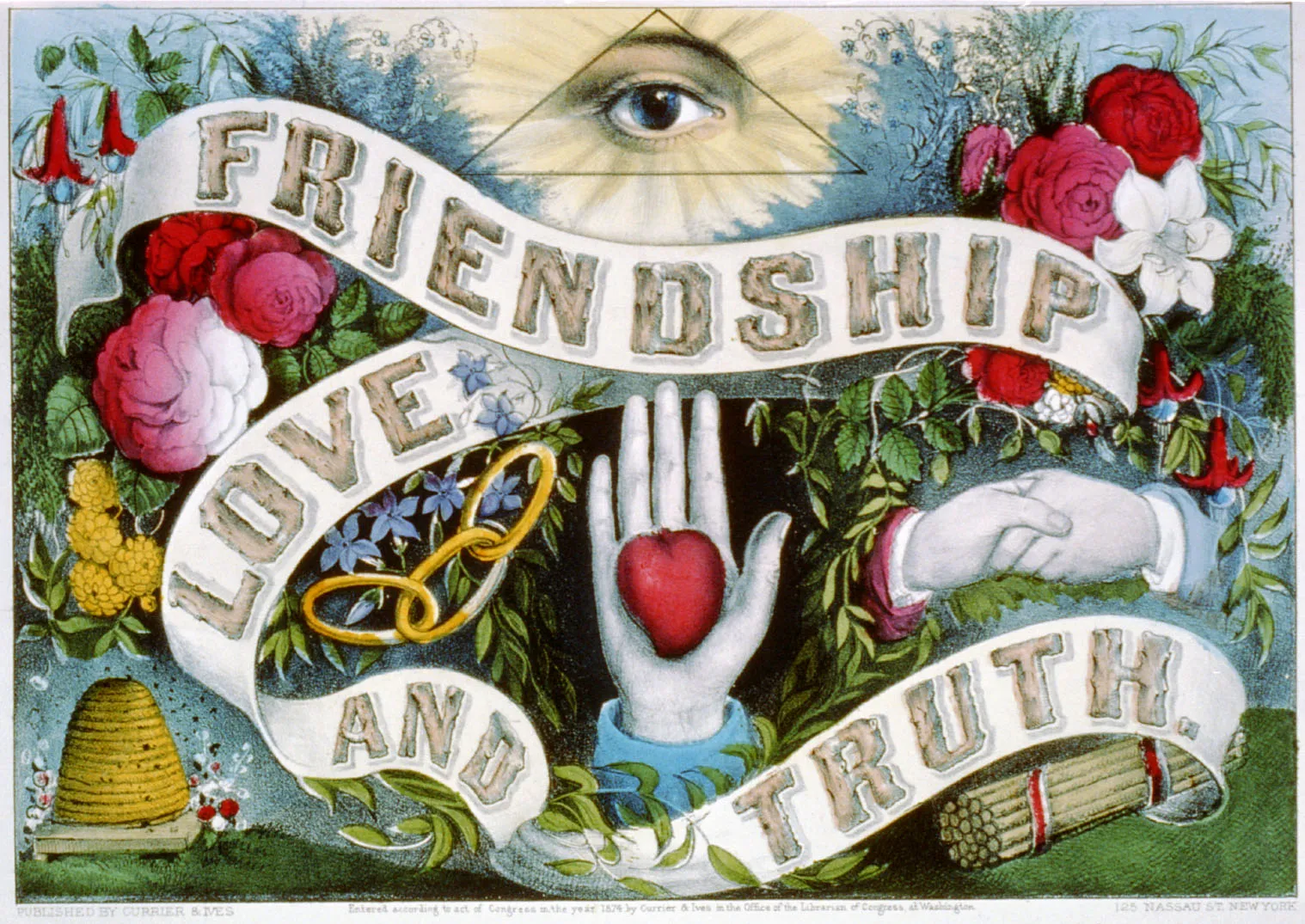Truth, a concept that has puzzled and intrigued humankind for centuries. The notion of truth being relative or objective has sparked debates among philosophers and regular folks alike. Delving into different perspectives, this article explores the complexities of truth and invites readers to question their own beliefs. Read on to gain a deeper understanding of the most fundamental aspect of our perceptions and beliefs.
Different perspectives on truth

When discussing the concept of truth, it is important to acknowledge that there are many different perspectives on what it means. Here are a few perspectives to consider:
-
Objective truth: This view suggests that truth exists independent of personal opinions or feelings. In other words, there are objective facts that are true regardless of how we might perceive them. For example, the fact that the earth revolves around the sun is an objective truth.
-
Subjective truth: This perspective posits that truth is relative to individual experiences and perceptions. In other words, what is true for one person may not be true for another based on their unique experiences. For example, a person who has never tasted chocolate ice cream might truthfully say that they don’t like it, even if someone else might find it delicious.
-
Relativism: This view suggests that truth is inherently subjective and that what is true for one person or culture may not be true for another. Moral relativism takes this idea a step further and suggests that there are no universal moral truths that apply to all people in all cultures.
-
Postmodernism: Postmodernism is a philosophical movement that emphasizes the subjectivity of reality and the difficulty of determining what is true. It challenges the idea that truth can be objectively determined and argues that truth is constructed through language and cultural context.
-
Existentialism: This perspective suggests that each individual must define their own truth and create their own meaning in life. It emphasizes the role of individual experience and personal choice in shaping what is true.
Navigating these different perspectives on truth can be challenging, particularly in today’s diverse and pluralistic society. However, it is important to continue grappling with these ideas in order to better understand our own perspectives and beliefs. Here are a few tips for navigating the complexities of truth:
- Be open to different perspectives and viewpoints.
- Consider the cultural and ideological context in which truths are constructed.
- Examine your own assumptions and biases.
- Practice tolerance and empathy towards those who hold different beliefs.
- Recognize that truth is complex and multifaceted, and that multiple perspectives can exist simultaneously.

By engaging with these tips and grappling with the complexities of truth, we can gain a deeper understanding of our own beliefs and the beliefs of others.
What is objective truth?
When discussing the question of whether truth is relative, it’s important to understand the concept of objective truth. Objective truth is the idea that there are certain things that are true regardless of what anyone believes, thinks, or perceives. In other words, objective truth is not dependent on subjective opinions or personal experiences.
For example, the fact that the Earth orbits around the sun is an objective truth that is based on scientific evidence and observation. It doesn’t matter if someone believes that the Earth is flat or that the sun revolves around the Earth, the objective truth remains the same.
The concept of objective truth is often contrasted with the idea of subjective truth, which is based on personal opinions or experiences. For example, the statement “chocolate ice cream is the best flavor” is a subjective truth because it’s based on personal preference and can vary from person to person.
There are also different philosophical perspectives on objective truth, including the views of Plato, Aristotle, and Immanuel Kant. In Plato’s philosophy, objective truth is based on the existence of eternal, unchanging Forms or Ideas that exist independently of human perception. Aristotle believed that objective truth could be discovered through empirical observation and scientific inquiry.
In contemporary philosophy, the concept of objective truth has been challenged by relativism, which suggests that truth is always relative to cultural or individual perspectives. This view is often associated with postmodernism and is sometimes used to support the promotion of moral relativism, which suggests that moral values and principles are relative to individual or cultural contexts.
As Christians, we believe in the existence of objective truth based on the teachings of the Bible. We believe that God’s Word represents objective truth that is independent of subjective opinions or personal experiences. However, we also recognize the role of perception in shaping our understanding of truth and the need for humility in our pursuit of truth.
Ultimately, the question of whether truth is relative or objective is a complex and ongoing philosophical debate. While we may not have all the answers, as Christians, we can find comfort and guidance in the objective truth that is revealed to us through the teachings of the Bible.
Relativism and its implications
When it comes to truth, there are many different perspectives to consider. One perspective that has gained popularity in recent years is relativism. Relativism is the idea that truth is relative to individuals or cultures and therefore cannot be objective or absolute. This approach to truth has significant implications for how we view morality, ethics, and values.

Here are some things to consider when it comes to relativism and its implications:
-
There is no objective truth: According to relativism, truth is not absolute or objective, but rather subjective and relative. This means that what is true for one person or culture may not be true for another.
-
Moral relativism: One area where relativism has significant implications is in the realm of morality. If truth is relative, then what is considered right or wrong is also relative. This means that there is no universal moral standard.
-
Cultural relativism: Another area where relativism has implications is in the realm of culture. If truth is relative, then cultural practices cannot be judged as right or wrong, but only as relative to that culture.
-
The danger of relativism: One of the dangers of relativism is that it can lead to moral and cultural complacency. When there is no objective standard for right and wrong, it is easy to justify behavior that is harmful or unjust.
-
The role of perception: Relativism puts a great deal of emphasis on subjective perception. According to this view, truth is not objective, but rather dependent on individual perception. This can be problematic because perception can be influenced by a wide range of factors, including bias, emotion, and cultural conditioning.
Navigating the complexities of truth can be challenging, but it is important to recognize the implications of different perspectives on truth. While relativism may have some merit, it is important to be aware of its potential pitfalls and to cultivate a sense of discernment when evaluating truth claims.
To summarize, here are some key points to keep in mind:
- Relativism is the idea that truth is relative to individuals or cultures and cannot be objective or absolute.
- This approach has significant implications for how we view morality, ethics, and values.
- Relativism can lead to moral and cultural complacency and places a great deal of emphasis on individual perception.
- Navigating the complexities of truth requires discernment and an awareness of the potential pitfalls of different perspectives.
The role of perception in truth
When it comes to truth, perception plays a critical role in how we understand and interpret it. Perception is the process by which we receive and interpret sensory information from our environment. This includes our five senses—sight, sound, touch, taste, and smell—as well as our internal thoughts, emotions, and beliefs.
Many people believe that perception is subjective, meaning that it varies from person to person and is influenced by individual experiences and biases. As a result, they argue that truth is similarly subjective and that there is no such thing as objective truth.
For others, however, perception is not necessarily subjective but rather a tool that can be used to understand objective reality. In this view, perception is a way to interpret the world around us and discern what is truly real. While individual perceptions may differ, objective truth is still seen as existing independently of our perceptions.
« Crystal Clear: Exploring The Bible’s Perspective on Crystals
Unveiling the Mysteries of the Queen of Heaven in Christian Iconography »
The debate around perception and truth has important implications for a variety of fields. In philosophy, epistemology is the branch of study concerned with how we acquire knowledge. One of the central questions in epistemology is how our perceptions inform our understanding of truth. The field of ontology, on the other hand, concerns itself with the nature of reality and what exists. Here, the role of perception in shaping our understanding of reality is also a key topic of debate.
If perception is indeed subjective, as many argue, then it raises questions about how we can achieve a shared understanding of truth. If our perceptions are influenced by our individual experiences and biases, then it seems unlikely that we will ever be able to come to a consensus on what is objectively true. This has important implications in fields such as morality and ethics, where disagreements over what constitutes right and wrong can be heated and contentious.
Alternatively, if perception is seen as a tool for understanding objective reality, then it raises the question of how we can ensure that our perceptions are accurate. Here, the scientific method provides a useful framework for testing our perceptions against empirical evidence and seeking to discern what is objectively true.
Navigating the complexities of truth and perception can be a challenging task. It requires us to be mindful of our biases and conscious of the limitations of our own perceptions. It also requires us to be open to engaging with contradictory viewpoints and challenging our own beliefs. By doing so, we can begin to arrive at a more nuanced and thoughtful understanding of truth that is both grounded in evidence and open to the insights of others.

The philosophical debate on truth
When it comes to the question of whether truth is relative or absolute, the field of philosophy has been grappling with this question for centuries. While some philosophers argue for the existence of absolute, objective truth, others argue that truth is subjective and relative to the individual or cultural context.
Here are some of the philosophical perspectives on truth:
-
RATIONALISM: This school of thought holds that truth can be discovered through reason and logic. Rationalists argue that there are universal truths that apply to all people regardless of their individual experiences.
-
EMPIRICISM: Empiricists, on the other hand, argue that truth is only found through direct experience and observation. They believe that there is no such thing as universal truth, only subjective interpretations of reality.
-
PRAGMATISM: This perspective on truth emphasizes the practical usefulness of ideas and beliefs. Pragmatists argue that ideas should be judged based on their effectiveness in solving real-world problems, rather than whether or not they are objectively true.
-
EXISTENTIALISM: Existentialists believe that truth is subjective and is shaped by individual experiences and perceptions. They argue that truth is not something that can be discovered objectively, but rather something that must be created by each person through their own personal experiences.
-
POSTMODERNISM: Postmodernists reject the notion of absolute truth and argue that truth is always relative, shaped by the cultural and social context in which it is found. They view truth as a social construct, rather than an objective reality.
As you can see, there are many different philosophical perspectives on truth, each with their own unique insights and limitations. While it can be tempting to try and find a definitive answer to the question of whether truth is relative or absolute, the reality is often more complex than we would like.
Navigating the complexities of truth requires us to be open-minded, tolerant, and willing to engage with different points of view. The philosophical debate on truth is ongoing, and there is much that we can learn from the insights of different perspectives.

If you’re interested in learning more about the philosophical debate on truth, consider exploring the works of philosophers like Plato, Kant, Nietzsche, and Foucault. By engaging with these ideas, we can deepen our understanding of what truth is, how it is perceived, and how we can approach the complexities of truth with wisdom and humility.
In summary, the philosophical debate on truth is ongoing and complex. Understanding the different perspectives on truth is essential to navigating the complexities of truth with wisdom and humility.
Navigating the complexities of truth
Finding the truth can be a tough and complicated process. It is often subject to individual understandings and cultural perspectives. As you try to navigate the complexities of truth, you will find that there are various philosophies, theories, and ideas that clash and contradict each other.
The topic of truth involves metaphysics, epistemology, and ontology, which is why the perspective you take depends a lot on the philosophy you hold. For instance, existentialism believes that subjective experience is crucial in determining what is true, while nihilism discredits all forms of truth and beliefs.
The truth is that truth is subjective and objective, depending on one’s perspective. There is relative truth, which is subject to change, and absolute truth, which is universal. Absolute truth is an objective standard that doesn’t rely on a particular culture, religion, or individual beliefs.

In the realm of morality, moral relativism dictates that there are no objective moral standards; everything depends on personal and cultural values. In contrast, cultural relativism holds that what is true depends on the surrounding culture. This view can have dangerous implications since it justifies immoral and unjust actions under the guise of cultural norms.
The way we perceive the world and our individual reality also plays a significant role in determining what we consider to be true. Perception can be subject to misinterpretation or distortions, which can lead to errors in our understanding of reality.
Navigating the complexities of truth requires one to be willing to entertain opposing ideas and understand the differing perspectives. It would be best if you looked at the evidence and logic behind the different points of view, instead of blindly accepting ideas.
In Christianity, there is a standard of truth that is definitive of the faith. Christians believe in absolute truth that transcends culture and time. The Bible is the ultimate source of truth for Christians, and it contains essential teachings on the nature of reality, God, and morality. Many Christians believe in using apologetics, which involves using logic, evidence, and reasoning to defend the Christian faith.
To grow and develop in your Christian faith, it is important to have a firm understanding of truth. Seek out the truth, but recognize that it is often a multifaceted and complicated topic. Embrace the idea of understanding and listening to opposing views, while at the same time holding firmly to an unwavering faith in the ultimate truth of God.












